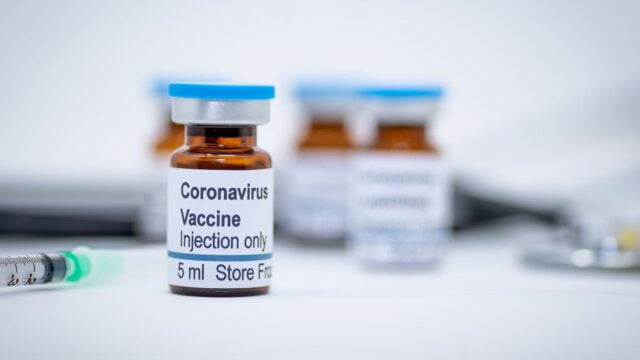The world is witnessing the outbreak of a lethal pandemic which has killed over a million people. It’s almost a year since the first COVID-19 positive case was detected in Wuhan, China.
Thereafter, the spread of the virus increased and has largely affected the United States of America, the European countries and third-world countries like India.
Some countries, like New Zealand, managed to flatten their curve in the early stages of the outbreak but several others are suffering from multiple waves of the pandemic. This also led to nationwide lockdowns in various countries and a global economic slowdown.
The entire world is looking forward to going back to normal after the end of this pandemic. News and updates relating to the coronavirus vaccine have instilled hope in the hearts of people.
Russian vaccine Sputnik V has shown promising results and the US-based Pfizer’s vaccine has shown 90% efficiency. The latest update has come from Moderna, which has claimed a success rate of 94.5% in the preliminary analysis.
These trials and the positive results have proven that the coronavirus isn’t incurable. It can be mitigated with the right vaccine which is being made by the scientists and would be available by 2021.
However, does a vaccine mean going back to the old, normal life? If you think that a vaccine would throw the world on the track of normalcy, you’ve got it wrong. And you aren’t the only one. Sir John Bell, professor of medicine at the University of Oxford has also claimed that life will go back to normal by next spring. This statement has sparked discussions and debates.

Less Effectiveness
The updates on vaccines are certainly fantastic and welcoming. However, if we take a look at the preliminary statistics provided by companies like Pfizer and Moderna, the success rate isn’t 100%.
Not all vaccines provide a 100% success rate as the possibilities of allergies and side-effects can’t be ruled out.
However, the first-generation COVID-19 vaccines have provided only promising statistics in the preliminary analysis. It cannot be treated as conclusive proof of the safety and effectiveness of the vaccine.
Dr. Fiona Culley from National Heart and Lung Institute, Imperial College, London says that though the vaccine offers hope for possible eradication of the pandemic, the history of vaccine suggests otherwise. Failures aren’t new to this process and thus, we must wait for the final results before hiking our hopes.
Also, it is the first time that mRNA is being used for making a vaccine against viral infection. This may hinder its effectiveness.
Read Also: Pfizer’s Coronavirus Vaccine Announcement Impacts Zoom; Shares Fall By 16%
Mutations In The Virus
The virus we are looking at today is the SARS-CoV-2. However, we cannot ignore the studies which suggest a rapid mutation in the virus.
One such incident came to light in Denmark where the antibodies couldn’t readily stop the spread of the virus. Russia has also noted mutations in the virus in Serbia, which has resulted in a higher death rate.
These mutations are not only increasing the spread of the virus, but it has also led to complications in vaccine development. Thus, while discussing the phenomenal change that may be brought by the discovery of the vaccine, the changing character-traits of the virus cannot be ignored.
Challenge Of Mass Production
The world population stands at 7.8 billion right now. This means that 7.8 billion doses of vaccine are needed.
The latest data suggest that a minimum of 70% of the population needs strong immunity against the virus. This means that such people will need immediate doses of the vaccine. To achieve this goal, mass production is needed.
AstraZeneca says that they have the capacity to produce 2 billion doses. Moderna and Pfizer claim to produce 1 billion and 1.3 billion doses by the end of 2021 respectively. This leaves us short of vaccine shots to eradicate the spread of the virus.
All these problems and many others may arise with the successive stages of vaccine development. While we are hopeful to see a vaccine coming to market in 2021, it won’t be able to eradicate the pandemic or send us back to normal.
Image Source: Google Images
Sources: Financial Express, The Conversation, The Lancet
Find The Blogger At: @innocentlysane
This post is tagged under: virus, coronavirus, COVID-19, SARS-CoV-2, coronavirus vaccine, sputnik V, sputnik, russian vaccine, Pfizer, Moderna, Vaccine, population, mass prouction, preliminary analysis, vaccine doses, covid vaccine, covid, pandemic, world economy, economic slowdown, deaths, covid patients
Other Recommendations:
At Least 5 Lac Sharks May Be Slaughtered To Make COVID-19 Vaccine Doses For The Whole World